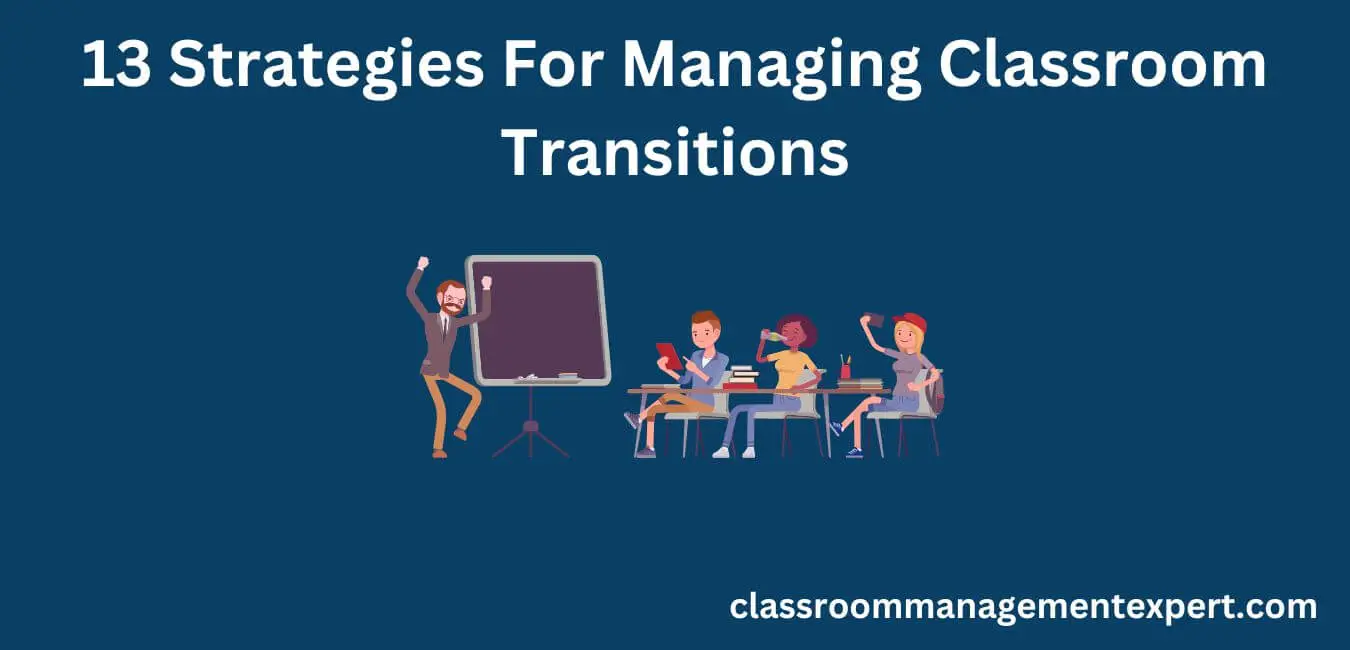As a teacher, it is important to create a classroom environment that is conducive to learning and growth.
However, there are some students who may be particularly sensitive to criticism, making it difficult for teachers to ensure everyone in the class is supported while still providing effective instruction.
To help foster an understanding classroom atmosphere, here are some tips on how to manage students who are sensitive to criticism in your classroom.
Characteristics of Students Who Are Sensitive to Criticism
Students who are sensitive to criticism often have a difficult time dealing with feedback on their work. However, there are nine characteristics that can be identified in these students.
1. They may become easily upset when given negative feedback.
2. They tend to take criticism personally and feel like it is an attack on their character rather than their work.
3. They may become overly defensive when receiving criticism.
4. They may avoid seeking feedback altogether out of fear of being judged or criticized.
5. They may struggle to accept constructive criticism and find it hard to use it as an opportunity for growth.
6. They may have difficulty forming relationships with instructors or peers due to their sensitivity to criticism.
7. They may focus more on the negative aspects of themselves and their work instead of the positive.
8. They might be reluctant to try new things or take risks because of fear of failure or criticism from others.
9. They may develop feelings of insecurity or low self-esteem due to difficulty in accepting negative feedback.
By understanding the needs of each student and implementing these strategies, teachers can help create a positive and productive learning environment for all.
Steps to Handle Students Who Are Sensitive to Criticism
1. Acknowledge the Student’s Feelings
Acknowledging a student’s feelings can help you handle students who are sensitive to criticism in several ways.
Firstly, it is important to recognize and validate the student’s emotions before addressing any issues; this helps to make them feel heard and respected.
It also gives them an opportunity to explain their perspective on the situation, which can provide valuable insight into how they think and feel.
Additionally, acknowledging their feelings allows you to be more understanding of the student’s reaction and respond in a way that takes into account their individual needs.
Finally, this approach helps build trust between you and the student as they will see that you understand their emotions and are willing to work with them in order to address any issues.
Acknowledging a student’s feelings is thus an essential tool for handling sensitive students in a constructive manner.
2. Be Clear and Concise in Your Criticism
Being clear and concise in your criticisms is an important part of handling students who are sensitive to criticism.
It helps them understand what the criticism is about, and it also allows them to process their emotions without unnecessary confusion or complexity.
By being precise in your feedback, you can provide guidance on what needs to be addressed while respecting their feelings.
Additionally, by being clear and succinct, you can help the student stay focused on the issue at hand and not become overwhelmed or discouraged by the amount of criticism they receive.
Clear and concise criticism shows respect for the student’s feelings while still providing useful feedback that can help them improve.
It also allows for a more productive discussion about how to move forward with their learning, as both parties can remain focused on the topic at hand and not get sidetracked by unrelated matters.
3. Provide Positive Reinforcement
Providing positive reinforcement is an effective way to help students who are sensitive to criticism. By giving them positive feedback, they will be encouraged to continue their efforts and keep trying even when faced with difficulty.
Doing so can also help build their self-esteem and confidence, both of which are essential for success. Furthermore, it can help create a more supportive learning environment that encourages collaboration rather than competition among peers.
When students feel valued and appreciated for their efforts, they will be more likely to take responsibility for their own learning and remain engaged in the process.
Additionally, providing positive reinforcement can lead to increased motivation as students will want to receive such praise from teachers or peers.
Overall, positive reinforcement is a powerful tool that can be used to positively influence student behavior and encourage them to reach their full potential.
4. Give Specific Feedback
Giving specific feedback to students who are sensitive to criticism can be beneficial in many ways. For starters, it can help to create a safe and supportive learning environment.
Specific feedback allows the student to better understand what they need to do differently and also gives them an opportunity to ask questions or receive additional support from the teacher.
Additionally, providing specific feedback helps the student to focus on the areas where they need improvement instead of feeling negative about their abilities as a whole.
Furthermore, focusing on small details rather than general critiques helps to provide constructive criticism that will be more effective in helping the student achieve their goals.
Finally, providing specific feedback allows for an open dialogue between teacher and student, which will help foster trust and respect for both parties involved.
5. Use Alternatives to Criticism
Another alternative to criticism is to offer multiple perspectives. When something does not go as planned, ask your students what they think could have gone differently and offer alternative perspectives on the situation. This allows them to explore the different angles of a situation and learn from it.
Additionally, when providing feedback, it’s important to emphasize progress over perfection. Encourage your students to focus on their successes and recognize their progress rather than dwelling on the areas where they need improvement.
You can also offer solutions in addition to criticism by asking open-ended questions that help your students discover possible solutions for themselves.
Finally, you can also utilize the “criticism sandwich” technique; begin by acknowledging a point where the student did well, then make a criticism, and finally focus on the behavior, not the person.
Using these alternatives to criticism can help you provide your students with constructive feedback that helps them develop resilience and self-awareness.
6. Offer Multiple Perspectives
You can also help students who are sensitive to criticism by offering multiple perspectives. By doing this, you can show that there is more than one way of looking at things and that even if a student’s opinion is not accepted, it is still valued.
This can help students build their resilience and understand that they will not always get their way. Additionally, it encourages collaboration and helps students to understand how different perspectives can be used to solve a problem.
When offering multiple perspectives, be sure to keep the tone friendly and use positive language. Additionally, provide concrete examples of different points of view so that students can see how they are applicable in real-life situations.
7. Offer Solutions, Not Just Criticism
Once you have identified an area where a student needs to improve, it’s important to offer solutions and not only criticism. It can be helpful to brainstorm with the student about what could be done to address the issue.
By offering solutions, you are emphasizing progress over perfection and showing the student that you believe in their potential.
Additionally, it can be beneficial to ask open-ended questions that will help the student arrive at their own solutions or help them think through the problem in a new way.
This can empower them and help them develop self-awareness, while also providing them with valuable problem-solving skills.
8. Emphasize Progress Over Perfection
You have already taken steps to ensure that your students feel supported and understood when they receive criticism.
Now, it’s important to emphasize progress over perfection and encourage resilience. Help your students understand that mistakes are part of the learning process and that it’s okay to make them.
Celebrate small successes and recognize your student’s efforts. Ask open-ended questions that explore different perspectives, and offer multiple solutions to the problem.
Offer guidance and suggest ways they can improve, but make sure to emphasize progress over perfection.
By encouraging collaborative problem-solving, you can help your student develop self-awareness and learn from their mistakes.
9. Ask Open-Ended Questions
Asking open-ended questions is a great way to encourage students who are sensitive to criticism to think more deeply about the issue at hand.
By posing questions that cannot be answered with a simple yes or no, you can help them reflect on why they may have made certain decisions, and how they can improve in the future.
Furthermore, by allowing them to explain their thoughts and opinions on the matter, you can help them understand their own feelings and behavior in a more constructive way.
Asking open-ended questions will also help you provide more specific feedback and offer multiple perspectives.
10. Encourage Collaboration
Collaboration is a great way to help students learn how to handle criticism in a constructive way. By working together in small groups, they can discuss their ideas, share feedback, and come up with solutions to any problems they encounter.
This helps them learn how to communicate with others in an open and respectful manner, and gives them the opportunity to practice their critical thinking skills.
As a teacher, you can facilitate collaboration by giving students the space and time they need to brainstorm, discuss, and problem-solve.
Encouraging collaboration also reinforces the idea that everyone’s opinion matters and that it’s important to listen to each other’s thoughts before making a final decision.
11. Model Resilience
It’s important to model resilience for students who are sensitive to criticism. Show them that it’s okay to make mistakes and that challenges can be overcome with effort.
You can emphasize progress over perfection, and offer solutions instead of criticism. Encourage collaboration and help students develop self-awareness so they can learn how to take constructive criticism without feeling discouraged. Remind them that failure is not the end, but rather a learning opportunity.
By showing them that you’re resilient in the face of challenges, you’ll inspire others and empower them to face their own challenges with courage.
12. Focus on Strengths
Focusing on strengths can help you handle students who are sensitive to criticism in several ways.
Firstly, it allows you to shift the focus away from pointing out weaknesses and instead emphasizes the student’s talents and abilities. This helps to prevent them from feeling overwhelmed by criticism or feeling like they are not good enough.
Additionally, it encourages the student to think positively about themselves and their abilities and can boost their self-confidence.
Furthermore, it can inspire them to take ownership of their learning journey and be proactive in looking for areas where they can improve or build on existing skills.
Ultimately, focusing on strengths helps to create a positive learning environment that is supportive and encouraging, rather than one that is critical or judgmental.
13. Help Students Develop Self-Awareness
Self-awareness helps students understand their own feelings, thoughts, and motivations. It is important to help students develop self-awareness so they can better regulate their emotions and behavior. This will allow them to better cope with criticism and setbacks.
By teaching students self-awareness skills such as identifying and labeling emotions, recognizing triggers, understanding how their thoughts affect their feelings, and developing effective coping strategies, they can become more resilient in the face of criticism.
This skill also allows them to become reflective on their own behavior and take responsibility for it instead of blaming others.
These self-awareness skills are essential in today’s world, as it helps ensure that students can handle criticism without becoming too sensitive or defensive.
As a teacher, by helping students develop self-awareness you are equipping them with tools that will help them thrive in any environment.
14. Avoid Inflammatory Language
It is essential to avoid inflammatory language when criticizing students who are sensitive to criticism. Doing so will help to ensure that students do not feel attacked or devalued. Try using neutral language instead of words that can be interpreted as aggressive or hostile.
Additionally, be sure to focus on the behavior or work product, not the individual. Model constructive criticism for the class, and practice turning negative comments into constructive comments.
When it comes to criticism, it is important to emphasize progress over perfection and to encourage collaboration amongst the group.
Finally, listen actively and with an open ear to understand others’ views. Doing so will allow everyone the opportunity to speak and make sure that no one feels unheard or ignored.
15. Utilize the “Criticism Sandwich” Technique
The criticism sandwich technique is a great way to soften the blow of criticism while still providing constructive feedback. It involves sandwiching the criticism between two positive comments.
This helps remind students that you are providing feedback in order to help them improve and not to be overly critical or negative.
Start by acknowledging something that the student has done well, and then provide specific feedback on how they could improve.
End with another positive comment, emphasizing what you liked about their work or effort. This technique allows you to provide students with constructive criticism without causing them to feel overwhelmed or demoralized.
When used in combination with other techniques such as offering solutions, emphasizing progress over perfection, and encouraging collaboration, it can be an effective tool for helping students who are sensitive to criticism.
Conclusion
In conclusion, it is important for educators to recognize and understand that all students respond differently to criticism. It is important to be mindful of the student’s individual needs when dealing with sensitive topics.
Additionally, it is beneficial to have an open dialogue with the student about their feelings and how they can effectively handle criticism in a positive manner.
Educators should also take the time to explain why they are giving out constructive criticism and how it can help the student in the long run.
Lastly, providing support and understanding throughout the process will help alleviate any potential stress or anxiety associated with receiving feedback from the teacher.
By following these tips, educators can ensure that their classrooms remain a safe and supportive environment for all students.



















